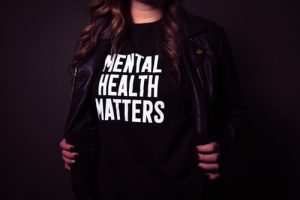After testing positive for the coronavirus, a third of all patients will develop neurological complications.
One in every three patients develop a mental or neurological disorder, according to a new study published in Lancet Psychiatry that examined the medical records of 230,000 U.S. survivors of COVID-19. Up to 34% of them reported experienced these symptoms and of those, 13% had no recorded history of a mental or psychological complications. Up to 17% reported suffering from anxiety and 14% reported mood disorders. Others reported neurobiological imbalances, including stroke, dementia, or psychosis.
“The data are worrying,” says Paul Harrison, professor of psychiatry at the University of Oxford and lead author of the study. “On the other hand, you could say, two-thirds of people after COVID are not getting any diagnosis of this kind. So, there’s some good news.” But, he added, “As a psychiatrist, I think psychosis is a particularly interesting and important group, not to get lost between anxiety and mood disorders and stroke.”
“Of the COVID-19 patients that needed to be admitted to an intensive care unit, one in 33 developed psychosis,” the team reported, noting there has been new onset psychotic disorders appearing weeks after having had the virus and most lasted for months thereafter.

Sarah Lowe, a clinical psychologist at the Yale School of Public Health, says the findings were “very striking, although in some ways not surprising.” She added, COVID-19 patients develop “extreme stress of a life-threatening illness during a global pandemic from a virus we were just learning about. These people were scared for their lives.”
“The severity of coronavirus systems,” Harrison noted, “did not affect the likelihood of developing anxiety or mood disorders.” He said, “That suggests to me that there is a more direct effect of either the virus or your body’s immune reaction to the virus.”
The authors concluded, “Various adverse neurological and psychiatric outcomes occurring after COVID-19 have been predicted and reported. The data presented in this study, from a large electronic health records network, support these predictions and provide estimates of the incidence and risk of these outcomes in patients who had COVID-19 compared with matched cohorts of patients with other health conditions occurring contemporaneously with the COVID-19 pandemic.”
While the study highlights the potential to develop mental health conditions as a result of COVID-19, but it may underestimate the number of people affected, Lowe cautioned, saying, “The majority of people who have mental disorders also do not seek treatment.” In fact, 57% of U.S. adults with a mental illness receive no treatment, according to the nonprofit Mental Health America, and five million are uninsured.
“We need urgent research to better understand how and, why, does this occur in patients with COVID-19 and how they can be treated and [how to] prevent it,” Max Taquet, a clinical fellow in psychiatry at the University of Oxford and a study co-author, said. “But we think that regardless of the explanation, health services need to be prepared for the increased demand that this data is showing.”
The study drives home the potentially long-term health effects of the virus. Jonathan Rogers and Anthony David of University College London commented, “Sadly, many of the disorders identified in this study tend to be chronic or recurrent, so we can anticipate that the impact of COVID-19 could be with us for many years,”
Sources:
1 In 3 COVID-19 Survivors Are Diagnosed With Mental Health Conditions


Join the conversation!